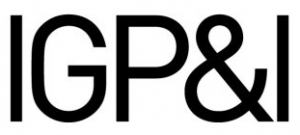
Inaccuracies in cargo declaration as well as shippers’ insistence on loading in rain are conditions found in Pepel, Sierra Leone and members are advised to be diligent in protecting against liquefaction.
Published 15 December 2021
Pursuant to our Member Circular No. 6/2021 on “Carriage of Iron Ore Fines Cargoes from Sierra Leone”, the club has been notified of a number of cases of actual liquefaction/dynamic separation of iron ore fines loaded from Sierra Leone.
Gard has been working closely with experts to understand the scale of the problem on the cargo loaded from Sierra Leone. As a start, upon careful review of shippers’ declarations, we have been notified of the following inaccuracies:
Cargo declared as - “Group A: a cargo not liable to liquefy”
The declaration incorrectly lists as a reference the IMO circular for Bauxite (CCC.1/Circ.2, Rev.1 2017) which is a different cargo than iron ore fines
The particle size distribution in the declaration is extreme when compared to the size range guidance detailed within the IMSBC Code schedule for Iron Ore Fines.
There are also concerns regarding the transportable moisture limit (TML) and moisture content (MC) declaration which may not be representative of the cargo loaded.
In addition to the above inaccuracies, we are also advised that shippers have also insisted on loading during heavy rain, which is not advisable given the fine-grained nature of this material. Finally, cargo is stored in open stockpiles in the port of Pepel which exposes them to a much higher risk of liquefaction.
In addition to the recommendations in our member circular, we would like to recommend the following safety measures.
Members to notify Gard before fixing the vessel to load iron ore fines at Pepel.
In addition to the notification, we also encourage our members to appoint a surveyor on site prior to loading.
Surveyor to collect cargo samples for lab analysis and carry out “can tests” (as per Section 8 of the IMSBC Code).
When conducting the can tests, the results should not be interpreted as “pass or fail” as the cargo would require detailed analysis and interpretation. Such field tests are only an indication of the moisture in the cargo, and we recommend that the masters look for careful examination of the cargo throughout the loading process.
Cargo loaded from Pepel is highly sensitive to small changes in moisture content which may not be evident from a can test. It is therefore recommended to not load this cargo during rain as it will very likely generate false negative results of can tests.
We would like to thank Lee Stenhouse of Roxburgh for the information.




